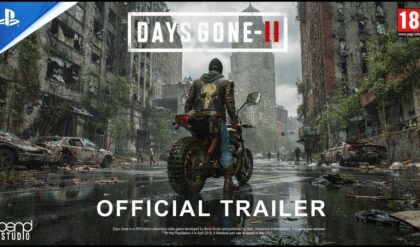Marvel’s Bold New Fantastic Four: A Risky Reinvention or a Franchise Fumble?
Since their debut in 1961, the Fantastic Four—Marvel’s First Family—have been a cornerstone of comic book lore, blending cosmic adventure, family drama, and scientific wonder. Created by Stan Lee and Jack Kirby, Reed Richards (Mister Fantastic), Sue Storm (Invisible Woman), Johnny Storm (Human Torch), and Ben Grimm (The Thing) have weathered countless reinventions, from comics to failed films. Now, as Marvel prepares to launch The Fantastic Four: First Steps in the Marvel Cinematic Universe (MCU) on July 25, 2025, a new rumor has set fandom ablaze: Marvel is introducing major changes to the team, and word is, fans won’t be happy. But what are these changes, why are they sparking such a reaction, and could they redefine Marvel’s most iconic squad for a new era? Let’s dive into the rumor, its context, and what it means for the Fantastic Four’s future.
The Rumor: A Radical Redesign for the Fantastic Four
The buzz began with reports claiming Marvel Studios is overhauling key elements of the Fantastic Four for their MCU debut. While specifics remain murky—no official statement from Marvel has confirmed the details—the chatter suggests alterations to the team’s dynamics, origins, or even powers, with some sources hinting at a reimagined narrative that diverges from the classic comics. Posts online have fueled speculation, with fans bracing for a shift that could “alienate” the core audience. One report tied the changes to the film’s retro-futuristic 1960s setting, an alternate universe distinct from the MCU’s main timeline, raising fears that Marvel is prioritizing bold experimentation over fidelity to the source material.
The lack of clarity hasn’t stopped the rumor mill. Some speculate the changes involve Sue Storm’s pregnancy, confirmed in early plot details, introducing Franklin Richards—a character with godlike powers—earlier than expected. Others point to whispers of a non-traditional origin, perhaps swapping cosmic rays for a multiversal or quantum mishap. There’s even talk of tweaking character roles, like emphasizing Sue as the team’s leader or altering Ben Grimm’s Thing form to be less monstrous. Whatever the truth, the claim that “fans will not like this” reflects anxiety over Marvel tampering with a team that’s already endured three cinematic misfires (1994, 2005, and 2015’s Fant4stic).
Why the Fantastic Four Matter
To understand the stakes, we need to revisit the Fantastic Four’s legacy. Debuting in Fantastic Four #1, they were Marvel’s answer to DC’s Justice League, but with a twist: they were a dysfunctional family, not masked vigilantes. Reed’s genius clashed with his aloofness, Sue balanced strength with domesticity, Johnny’s bravado masked insecurity, and Ben’s gruff heart hid pain over his rocky form. Their adventures—facing Galactus, Doctor Doom, and the Negative Zone—set the template for Marvel’s cosmic storytelling, introducing icons like the Silver Surfer and Black Panther.
Cinematically, though, the Fantastic Four have struggled. The unreleased 1994 film was a low-budget flop, the 2005 reboot (Fantastic Four and Rise of the Silver Surfer) was criticized for its campy tone, and 2015’s Fant4stic bombed with a 9% Rotten Tomatoes score, faulted for its gritty missteps and mishandling of Doctor Doom. Fans have waited decades for a definitive adaptation, and with The Fantastic Four: First Steps—directed by Matt Shakman and starring Pedro Pascal (Reed), Vanessa Kirby (Sue), Joseph Quinn (Johnny), and Ebon Moss-Bachrach (Ben)—hopes were high. The rumor of “major changes” threatens to derail that optimism, especially if it strays from the comics’ heart.
What Could the Changes Be?
Without confirmed details, speculation abounds. Here are the most discussed possibilities, drawn from fan chatter and industry leaks:
-
A New Origin Story: The classic Fantastic Four gained powers from cosmic rays during a space mission. Rumors suggest the MCU might replace this with a multiversal accident, tying to Doctor Strange in the Multiverse of Madness or Avengers: Secret Wars. A 2020 post from MCU insiders hinted at a “quantum-based” origin, which could feel too modern for the 1960s setting.
Franklin Richards’ Early Arrival: Plot details confirm Sue’s pregnancy, introducing Franklin, a mutant with reality-warping powers. In comics, Franklin’s birth came later (Fantastic Four Annual #6, 1968), so his inclusion now might overshadow the team’s formation. Fans fear he could dominate the story, turning the film into a setup for Secret Wars rather than a standalone tale.
Character Role Shifts: Some reports claim Sue might take a more central role, possibly as the team’s leader, reflecting her comic evolution as a powerhouse. Others suggest Johnny’s recklessness or Ben’s angst could be toned down to make them more “relatable,” risking their core traits. A controversial rumor even posits Ben’s Thing form might be less rocky, perhaps a sleek, tech-enhanced design—a move fans on forums call “a betrayal.”
Tonal or Thematic Changes: The 1960s alternate universe, described as “retro-futuristic,” might lean into quirky aesthetics or social commentary, alienating fans who want the comics’ blend of awe and grit. Director Shakman told Empire the film is “its own universe” with no MCU crossovers, a choice that could isolate it from the interconnected saga fans expect.
These changes, if true, could explain the “fans will not like this” sentiment. The Fantastic Four’s appeal lies in their grounded humanity—bickering over dinner while fighting gods. Any shift that feels like a gimmick or a departure from that dynamic risks backlash.
Fan Reactions: A Divided Galaxy
The claim that fans universally oppose the changes oversimplifies a complex fandom. Star Wars taught us fans rarely agree—some crave innovation, others demand loyalty to canon. For The Fantastic Four, reactions vary:
The Purists: Fans who grew up with Lee and Kirby’s run fear a repeat of Fant4stic’s mistakes—altering powers or origins to chase trends. A 2024 Reddit thread on r/MarvelStudios warned, “If they mess with the cosmic rays, it’s not the Fantastic Four.” These fans want the Baxter Building, Doom’s menace, and Reed’s stretchy heroics intact.
The Optimists: Others trust Marvel’s track record. Spider-Man: No Way Home and Deadpool & Wolverine blended nostalgia with fresh spins, earning $1.9 billion and $1.3 billion, respectively. Supporters argue Shakman, who crafted WandaVision’s bold narrative, can balance change with respect. A ComicBook.com poll showed 55% of fans are “excited” for the reboot, though 30% are “cautious.”
The Skeptics: A vocal minority, burned by Ant-Man and the Wasp: Quantumania’s 46% Rotten Tomatoes score, doubts Marvel’s Phase 6 vision. Online posts lament “too many multiverse shenanigans,” fearing the Fantastic Four will be pawns in a larger MCU chess game, not stars of their own story.
The rumor’s framing—“fans will not like this”—plays to this divide, amplifying fear to spark clicks. But history shows fans can embrace change: Captain America: Civil War reimagined Steve Rogers as a rebel, and it grossed $1.15 billion. The real question is whether Marvel’s gamble respects the Fantastic Four’s soul.
Marvel’s MCU Strategy: Risk vs. Reward
Marvel’s decision to tweak the Fantastic Four fits its Phase 6 pivot. After mixed results—Eternals (47% Rotten Tomatoes) and The Marvels ($394 million worldwide vs. $200 million budget)—the studio is doubling down on bold swings. The Fantastic Four: First Steps kicks off Phase 6, alongside Thunderbolts and Avengers: Doomsday, with Kevin Feige teasing a “new era.” The 1960s setting and alternate universe suggest Marvel wants a standalone epic, free from Avengers: Endgame’s shadow, to reintroduce the team before integrating them into Secret Wars.
This approach carries risks. The Fantastic Four’s past films flopped partly because they strayed from the comics—2005’s camp ignored Doom’s gravitas, and 2015’s grit botched the family vibe. Marvel’s changes, if too drastic, could repeat these errors. For instance, a tech-heavy Thing might feel like Iron Man’s armor, diluting Ben’s tragic humanity. Conversely, a Sue-led story could honor her comic growth—she’s wielded cosmic power since Fantastic Four #307 (1987)—and appeal to modern audiences. Box office trends favor bold reboots: Deadpool & Wolverine’s $1.3 billion haul shows fans reward fresh takes done right.
The Creative Team: Cause for Hope?
Shakman’s involvement inspires confidence. His work on WandaVision blended retro aesthetics with emotional depth, earning a 92% Rotten Tomatoes score. The cast—Pascal’s gravitas, Kirby’s elegance, Quinn’s charisma, and Moss-Bachrach’s grit—fits the Fantastic Four’s quirky dynamic. Writers Josh Friedman (Avatar: The Way of Water) and Cam Squires (WandaVision) suggest a mix of spectacle and heart. If anyone can navigate major changes, it’s this team, provided they keep the Fantastic Four’s essence: family first, heroes second.
What Could Go Wrong?
The biggest risk is losing the team’s relatability. Comics fans love Reed’s guilt over Ben’s transformation, Sue’s quiet strength, Johnny’s impulsiveness, and Ben’s loyalty. If changes—like a slicker Thing or a multiversal origin—feel like corporate meddling, fans may reject it. Fant4stic’s $167 million global gross against a $120 million budget shows the cost of missteps. Moreover, an alternate universe might confuse casual viewers, especially if Avengers: Doomsday (May 2026) hinges on multiversal stakes.
What Could Go Right?
If executed well, changes could revitalize the Fantastic Four. A Sue-centric story could mirror Captain Marvel’s empowerment arc, which grossed $1.1 billion. Franklin’s inclusion might set up a cosmic saga, tapping X-Men’s mutant hype. The 1960s vibe could evoke Mad Men meets Star Trek, a aesthetic unseen in the MCU. If Marvel nails the family dynamic—think Guardians of the Galaxy’s found-family charm—the film could soar.
Conclusion: A Leap of Faith
The rumor of major changes to the Fantastic Four has fans on edge, but it’s too early to judge. Marvel’s track record is imperfect, but hits like Spider-Man: Far From Home ($1.13 billion) prove they can innovate without losing fans. The Fantastic Four deserve a definitive film, and Shakman’s vision—rooted in a stellar cast and bold ideas—might deliver. Whether these changes spark outrage or awe depends on execution. For now, the Fantastic Four’s fate hangs in the balance, but one thing’s certain: Marvel’s First Family is ready to take their first steps into history. Let’s hope they land on solid ground.





